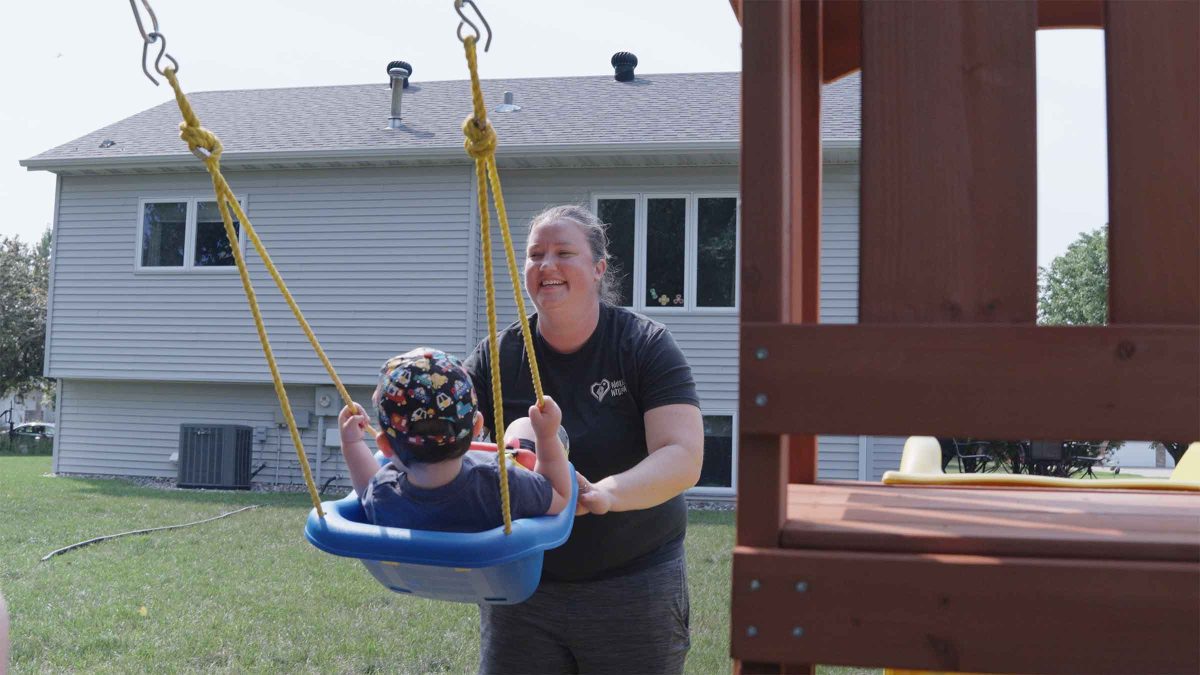Managing Resentment: Challenges of Spousal Caregiving

CaringBridge Staff | 04.03.24
As a family caregiver, you wear many hats – from nurse and companion to advocate and housekeeper – all while juggling your own emotional needs. So, it’s understandable that many caregivers report feeling overwhelmed and resentful of their situation and, sometimes, the partner for whom they care. If you feel this way, you’re not alone.
You may find yourself grieving the relationship you had before your partner’s health journey began. This grief, together with the immense weight of responsibilities and sacrifices, can build resentment over time.
Recognizing and understanding resentment are the first steps in managing it. Here’s how to spot signs of caregiver resentment of your spouse and how to navigate it effectively.
What Is Spouse Caregiver Resentment?
Spouse caregiver resentment is a feeling of frustration or anger that can develop when one partner has caregiving duties for another. Often, these emotions come from feeling overworked, alone or taken for granted.
Therapists and other professionals who work with caregivers report that resentment is normal. Many spouse caregiver relationships involve some level of resentment at some point. If you feel this way, you are not alone.
There are many reasons for this, including:
- Isolation: Caregiving often requires you to stop doing the things you once loved, like hobbies outside of the home. As you spend more time with your partner, you may spend less time with family and friends.
- Burnout: Caregiving is a task that doesn’t stop, which can lead to feelings of spouse caregiver burnout. It’s common to go without breaks that are needed to not wear yourself out.
- Lack of sleep: With 24/7 tasks, you may often go without the sleep you need. This can impact both emotional and physical health.
- Postponing your own self-care: You may often feel the need to put caregiving first. Indeed, it’s common for spouse caregivers to feel guilty when they prioritize their own care, even though it’s critical to their own health and well-being.
- Decreasing emotional/social/physical intimacy: When illness or injury impacts your relationship dynamics, it’s normal to grieve the intimate parts of your relationship that made you feel supported by, equal to and close with your partner.
- Wanting to feel cared for: It’s natural to want someone to care for and protect you. When you’re the caregiver, you often go without this care. Feeling like you are constantly giving your partner care but rarely receiving it back can be deeply challenging to process.
- Mourning “what used to be”/“what could have been,” etc.: It’s common to feel sad about the relationship you once shared. Plus, some spouse caregivers grieve the personal goals or careers that they needed to pause to provide care.
Related: How to Deal With Isolation: 8 Tips
Signs of Spouse Caregiver Resentment

Every relationship is unique, so the signs of spouse caregiver resentment are highly individualized. The signs may look different in each relationship, and signs that are present in one relationship might not be present in another.
Here are some of the common signs to look for in your relationship. You might be experiencing just a few of these or many:
- Increased irritability, becoming easily frustrated by caregiving tasks or when you’re not feeling appreciated
- Withdrawal or isolation, avoiding situations that may remind you of your caregiving responsibilities
- Emotional distancing between you and your spouse
- Increased criticism of the care recipient
- Physical symptoms like headaches, fatigue, muscle tension or digestive problems
- Neglecting your own self-care
- Loss of interest in activities you once enjoyed
- Feelings of guilt or shame
How to Navigate Spouse Caregiver Resentment
Caregiver resentment for a spouse is unique in every relationship, so it’s impossible to create a one-size-fits-all solution. Here are some ideas that may work for your situation:
Acknowledge and validate the resentment
It’s common for spouse caregivers to hesitate to acknowledge that they feel resentment. You see all that your partner has gone through during a health journey that has taken so much from them. It can be difficult to express negative emotions without guilt instead of exclusively showing devotion and gratitude.
The truth is that there’s no “right” way to feel, and your resentment may be more about the situation than your partner.
Take a moment to allow yourself to feel the full range of your emotions, and then do your best to name those feelings. Acknowledging and validating the resentment in this way is a meaningful start.
Identify the parts of caregiving that heighten these feelings
Take the time to notice when you feel especially resentful. Are there certain circumstances that set it off?
For example, one caregiver may feel resentment kick in when they struggle with household chores while their partner plays on the computer. Intellectually, they understand that their partner is not able to do the chores anymore due to their health journey. Emotionally, however, this brought up resentment mixed with sadness and anger for the loss they had both endured.
Maybe you feel resentful if your spouse criticizes you or doesn’t express gratitude for your help. Maybe you feel resentful when you’re sleep-deprived and struggling to complete an especially challenging task. If you can identify the parts of caregiving that heighten your resentment, you may be able to learn to soothe yourself when those moments come up.
Look for areas where you can set up boundaries

On airplanes, the safety instructions always tell you to put on your own oxygen mask first. With caretaking, the same rules apply. If you don’t take care of yourself first, you won’t be able to care for your spouse – at least not for long. Without proper boundaries, caretaker burnout is a real possibility.
To help you “put on your own oxygen mask first,” look for situations where you can set up boundaries.
For example, perhaps your partner’s care team could help you explore ideas for them to gradually regain their independence with smaller tasks (if feasible). Or maybe you have extended family members who overwhelm you by asking you frequent questions about your partner’s health journey, and you could assure them that you’ll reach out to them if there are meaningful updates.
Think of your own physical, emotional and spiritual needs. Talk with your spouse (if possible) and other family members. Make sure they understand what these needs are and how they can support you in making sure they’re met.
Use caregiving tools to lighten the mental load
There are many resources available both in the community and online that are designed to help caregivers.
Essential caregiving tools may include health platforms that allow you to communicate updates and coordinate care, like CaringBridge. That way you can stay connected to family and friends through any health journey.
Tools may also include task management systems that help you organize and prioritize tasks, set reminders and track progress, such as Trello. Care calendars and medication management tools also help keep care on track and ensure that medicine is given at the right time.
You may also be able to find the support you need in family caregiver support groups. There are many different types of support groups available. You’ll find many options available to help fit your needs, both in-person and online.
Find an outlet for your resentment

Having an outlet can help you express and process resentment.
This could be as simple as having someone to talk to regularly, whether it’s a friend, a loved one or a support group. Some people find journaling to be helpful. Others find exercise can be a healthy outlet, like going on a walk or following along with a free online yoga class on YouTube.
Tip: If journaling is a good option for you, CaringBridge is a no-cost online health platform that you can use to update your support system as you navigate your partner’s health journey. Once you create a CaringBridge, you can use your posts to seek advice, emotional support and more from your community.
Explore therapy or counseling, if feasible
Individual or couple’s therapy can be useful in helping you work through caregiver resentment toward your spouse. Plus, it can provide coping skills that help you manage these feelings as they arise.
If attending in-person sessions doesn’t fit in your schedule, many mental health professionals offer telehealth options to make things easier.
Tip: It can be hard to know where to start when you’re exploring therapy options. Some websites, like Psychology Today or APA Psychologist Locator, can help you find a mental health professional that fits your needs (telehealth, insurance coverage, etc.).
Know that it’s okay to seek support
If you’re feeling resentful, it’s okay to seek support. Asking for help during these challenging moments is a critical step in prioritizing your needs, especially when you feel like you have nothing left to give.
There are many ways to seek support. Whether you’re calling a friend, looking for respite care or posting to CaringBridge, you’re creating a support system to help you get through the day.
Tip: The ARCH National Respite Network & Resource Center may be able to help you locate respite services.
What Tips Would You Share?
Being a spouse caregiver is complicated. Sharing tips with other caregivers – and reading the tips they’ve shared – can be very helpful for fighting burnout or resentment. We invite you to share your experiences and thoughts on caregiver resentment and how to fight it.